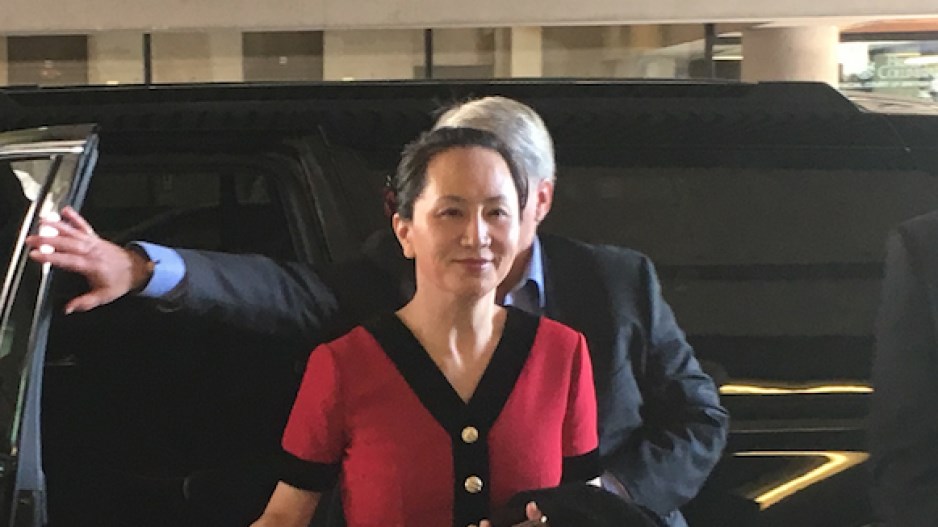The defence team for Huawei Technologies Co. Ltd. CFO Meng Wanzhou focused its firepower on Canada Border Services Agency officer Sowmith Katragadda on Friday, using information obtained in Meng’s separate civil lawsuit against the border agent to dig up discrepancies in his testimony.
Defence attorney Mona Duckett alleged that Katragadda’s response to Meng’s lawsuit showed a “carefully crafted response” intended to make the CBSA’s in-depth inspection of the Chinese executive’s admissibility into Canada look like a random occurrence. Duckett further alleged the CBSA invoked admissibility concerns on national security grounds only after learning the Huawei CFO intended to enter Canada on December 1, 2018, upon her arrival at YVR while connecting to Mexico.
“It is my proposition that ... you did not know Ms. Meng was entering Canada until you saw the boxes,” Duckett said, referring to the furniture Meng had with her destined for her Vancouver houses. “You took the electronic devices solely on the request of the RCMP.”
Katragadda denied the accusations, maintaining his stance that the CBSA had its own reasons of wanting to take the devices (for assessing Meng’s admissiblity), and the agency did not take any orders from the RCMP to seize the devices and passcodes to aid U.S. authorities gather evidence in their fraud case against Meng.
One such discrepancy noted by Duckett was that Katragadda’s civil defence mentioned the CBSA issuing a warrant to the RCMP on returning Meng to the CBSA – once Meng leaves police custody – to complete the inspection on her admissibility on national security concerns.
Duckett said Katragadda testified in court earlier this week that he did not have any grounds to believe Meng was inadmissible based on the three-hour secondary examination. If that was the case, Duckett said, the border officer did not have grounds to issue a warrant for Meng’s return to the CBSA.
“You did not have grounds to believe she was inadmissible, and you need that,” Duckett said, noting the warrant would trigger Meng’s right to counsel. “So you shouldn’t have issued that warrant.”
Katragadda, however, disagreed – saying the language of the warrant is standardized and cannot be changed by him. He further noted that there was ground for further inspection, and with Meng considered a flight risk, a warrant asking the police to return her to the CBSA was within the rules.
Duckett also referred to Katragadda’s civil defence – prepared by Crown lawyers – that said there were U.S. officials who were seeking contact information for the border officers on shift on Dec. 1, 2018 – the day of Meng’s arrival.
Duckett implied that the U.S. officials may have obtained that contact information and may have directed Katragadda on the plan to take Meng’s electronic devices.
“Do you think your contact information may have been given to [U.S. law enforcement]?” Duckett asked. “Did you get any contact from U.S. law enforcement agencies on Dec. 1?”
“Not on December 1, and not on this specific case,” Katragadda replied.
Friday also saw the start of the testimony from a sixth witness in this case – RCMP constable Gurvinder Dhaliwal, who with fellow police officer Winston Yep served Meng’s arrest warrant after the CBSA held the Chinese executive for three hours of questioning.
The hearings will continue Monday.




